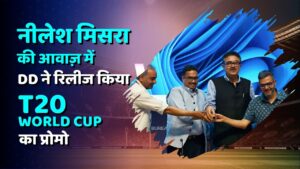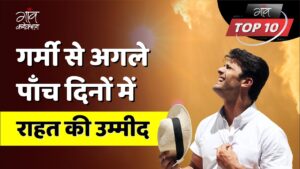Two reporters, one bike and a 500-km ride across Bundelkhand. For Gaon Connection reporters Jigyasa Mishra and Pragya Bharti, these seven days were a mix of fun, adventure, learning and some serious journalism. They visited many villages and tried to understand life from women’s perspective. This journey was about understanding their lives, struggles, hopes and aspirations.
Edited by: Swati Subhedar
I never thought I would get tired of eating poha, but by the time this trip ended, my taste buds were craving something more spicy or tangy. Though the jalebi-poha combo that you get for breakfast across Madhya Pradesh is sumptuous, but on our last day we accidently stumbled upon Gupta Tea Stall and its owner Shakuntala, who fed us some amazing samosa, fresh from the kadhai– exactly what I was craving for.

When we reached the dhaba, few people were relishing their poha-jalebi. And then I spotted Shakuntala, inside her shop, who was busy rolling maida sheets over a wooden rolling pin.
“I have been running this business from past 30 years. However, it’s been 15 years that we moved to this place. We open our stall at 6:00am. Some 20-25 college students come in the morning. We get a footfall of more than 200 people on a daily basis,” said Shakuntala.
Shakuntala manages her stall along with her husband and her son. “My husband and my son take care of the finances, while I handle the kitchen; from making preparations to estimating quantity. I deal with people and their demands. We love our job. Every day we make a profit of Rs 700,” she said.

It was heartening to see the way this family bonded, something that rarely happens in cities now because of lack of time.
On our way to Panna, we stopped at many villages. Though we had estimated that we would reach Panna by 5:30 pm, at 8 pm, we were still 40 kms away from our destination. It was quite eerie to drive on the stretch. It was pitch dark, and then there were many boards that read: “You are in a tiger reserve area”.
We reached Panna by 9pm.
Now began the real fight;that of finding a decent hotel to stay. Though we had checked online, we couldn’t find anything. But that didn’t stop us from stopping at Gandhi Chowk and gulping a glass full of lassi at famous Kada Lassi Bhandar. After a scary ride, it was a relief. And then we managed to find a half-decent guest house.

The next morning, we reached a village called Janvar, 25-30 kms from Panna city. What we saw here, stumped us beyond limits. We reached a primary school. There was a park nearby where we saw many kids efficiently manoeuvring their fancy skate boards!
It was a sight to behold to see these village navigate their skates. Very young girls and boys were gliding gracefully over elevated concrete setups. We were told that a foreigner who was visiting this village, had taught them this skill and had gifted them these boards.
“I want to represent my country in skate boarding. Our didi took us to Vishakhapatnam for a skating competition. It was a journey to remember. We also saw the ocean, and lived in a hotel room,” says Priya, 12, while gliding on the slab.

Panna city is also known as Heerey Ka Shehar(diamond mines). We couldn’t have missed visiting the sites, though we were running very late. It was closing time, but we managed to meet some people. The have taken pieces of land on lease from the government and work there.
Since it’s a hilly terrain and there are not many trees, we saw beautiful mirages here. While driving we came across many water bodies – mirages, of course – which made driving bit difficult.
There were a few people at the mines. Some were sifting stones; others were washing them. They all were trying their luck.
We spotted a woman who too was very diligently doing this. When we asked her if she worked alone, at first Ramkali just nodded, but didn’t reply. We had to offer her a chocolate to make her feel comfortable.

Ramkali, probably 60 or 65, is all alone. Her parents passed away when she was quite young. Since then she has been living alone.
“We take land on lease for Rs 200 per year. I do the digging myself while others hire labours to do so. That’s my bread and butter.”
She then advised me to be as carefree as her and never get married. “If you live with someone, you would have to live on his terms and conditions, which is not fair. I keep to myself. You seem like a nice person, hence I am talking to you. I come, I work and I go,” Ramkali and got back to her work.
She not only does the digging, but also manages the labour job. She works for 3-4 hours a day.
While we were leaving, we met another woman who was carrying a cloth back in one hand was herding her goats with the other. “I live in the Beedi Colony. Come with me. Let me take you around.”
Shabnam lives in a tobacco factory and makes bidis out of tendu leaves. That’s her bread and butter. She makes 100-200 bidis per day.

Shakuntala, Priya, Ramkali, Shabnam and scores of other women I met during the course of this trip, they have changed me as a person in their own humble ways.
While we were on our back, we had mixed feelings. But there were reasons to smile, because we were carrying bagful of memories….and stories with us. Stories that changed us forever.
Although we were leaving Bundelkhand, our journey has still not ended.




















